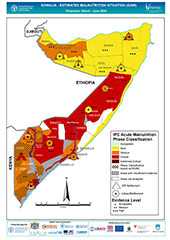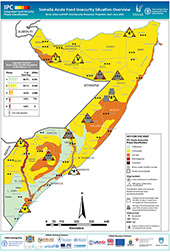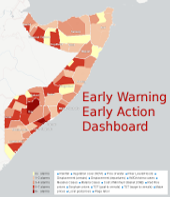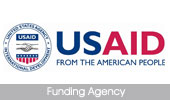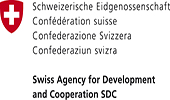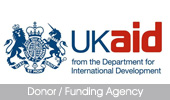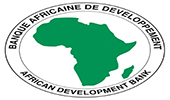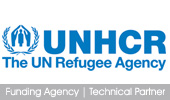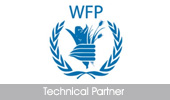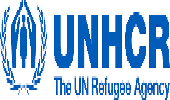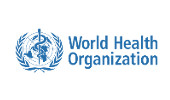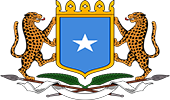Sectoral Analysis / Civil Insecurity
Civil Insecurity
Issued: 18 June 2010
Prolonged political unrest and violence continues to affect the lives and livelihoods of the Somali people. The conflicts in Mogadishu, Central and Hiran regions have persisted over the last few months. In May, fresh confrontations between opposing factions were reported in other parts of the South as well. In the relatively stable northern regions new clashes occurred in Oodweyne district of Togdheer region in late May, while political tensions prevailed in Lasanod district of Sool region. These events often resulted in human losses, destruction of properties, human displacements and disturbed market access and trade activities.
The city of Mogadishu, and Hiran and Galgadud regions, continue to remain the key hotspot areas, where violence and confrontations occur on a regular basis. Continuous clashes in Mogadishu cause disruption in market activities and exchange, particularly affecting poor households, who mainly rely on daily income from labour and small petty trade activities for their living. Consequently, large numbers of the urban poor, along with relatively wealthier families, continue seeking refuge in more stable areas either within the city or outside of it. Tensions also prevail in parts of the South, where direct confrontations of opposing armed groups are looming large, particularly in the regions of Juba, Gedo and Bakool. Along with the political conflict clan clashes occurred in May over the ownership of a communal water source in the neighbouring areas between Baidoa and Qasahdere districts (Bay region). The clashes claimed several lives, but the issue has reportedly been resolved.
The ongoing violent clashes in Central caused displacement of urban population, disruption of trade and of humanitarian activities. Earlier this month new clashes occurred in the outer east of Beletweyne town of Hiran region forcing a significant number of people displaced by the recent floods to return to their flooded homes risking their lives. Most recently, clashes were reported between local militia and Ethiopian forces in Buuhoodle district of Togdheer region, due to a border closure by the Ethiopian forces, denying Somali commercial trucks to enter Ethiopian territory. Reportedly, an estimated 1,800 households were displaced by these clashes (OCHA Weekly Humanitarian Report, 28 May-04 June 2010).
The IASC Population Movement Tracking update (June 4, 2010) estimated that nearly 53,000 people were displaced nationwide since April 2010, of which 17,000 were displaced during April and roughly 35,900 in May 2010. In about eighty-seven percent of cases (46,000 people), the displacements were driven by the prevailing insecurity in Mogadishu, Central, Hiran and other parts of the country. Nearly 35,000 of the total displaced are from or within Mogadishu.
Sea piracy acts against vessels moving through the international waters continued over the last few months. However, no targeted attacks of vessels, carrying commercial and humanitarian goods to Somalia were reported, after the unprecedented attacks of this kind undertaken in March 2010 (FSNAU Quarterly Brief, April 2010). Reportedly, out of 40 attempts of vessel hijacking that occurred since January 2010, 13 have been successful (OCHA Access Paper, April 2010).
As the overall security situation in Somalia remains critical in many parts of the country, prevailing restrictions in humanitarian access are still of serious concern in much of the southern and central Somalia. According to OCHA Access report (April 2010), the total number of international UN and international NGO staff has increased in April to 205 persons (196 in February 2010). Currently, majority of the staff is located in relatively stable northern Somalia. Although the international staff presence in the South and Central has also shown a gradual increase since February, the number of staff is considerably lower than one year ago.
